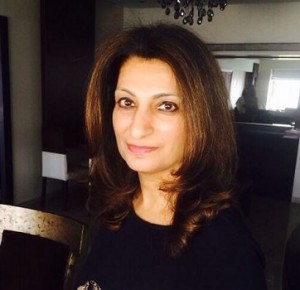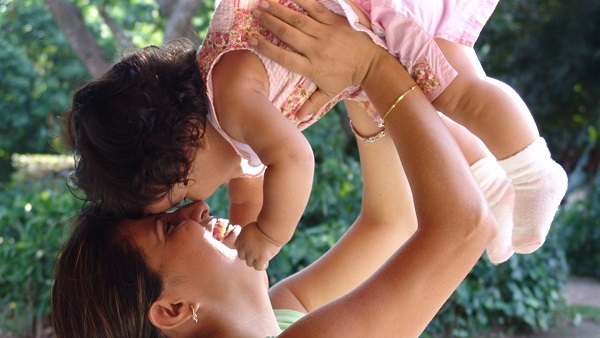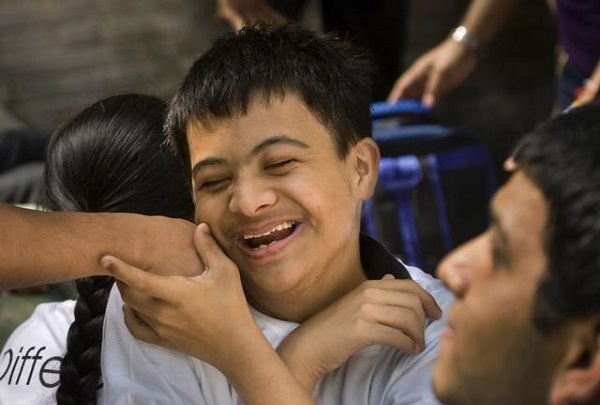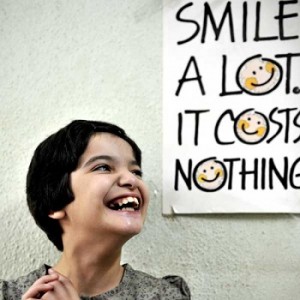Mothers who are exposed to Relationship Development Intervention are better able to visualise the future for their autism spectrum child.
 by Kamini Lakhani | saiconnections01@gmail.com
by Kamini Lakhani | saiconnections01@gmail.com
Part 12 of the Autism diaries.
I recently had a meeting with parents of a five-year-old. The mother did not seem to understand what was going on with the child. She felt that because she had left her child alone for one day, his autistic symptoms had aggravated overnight. I could see that the child was very clingy, he was not able to communicate and had a very low body tone. Even though he was clinging to his mother, the eye gaze was out of sync and he seemed disconnected. What the mother said concerned me even more – she was worried about what would happen to her child in his later years. She was not clear about what she wanted for her child – her major concern seemed to be about his speech.
This is a very common scenario. I definitely don’t mean to belittle the mother or her feelings in anyway. She needs help in terms of acceptance of the situation, pacing herself to focus on the present and worrying less about a distant future. The feedback loop between the mother and child is compromised and definitely needs rebuilding. The core deficits of autism stood out menacingly with this child – his lack of motivation, emotional sharing, meaningful communication, etc. All this would warrant the implementation of the RDI Programme (Relationship Development Intervention). In addition to all of this, his speech and motor issues would need to be handled by experienced Speech Language Pathologists and Occupational Therapists.
This scenario stayed with me through the next day – to my weekly group meeting with my empowered moms, who have been on the RDI programme for two years. I now wanted to see where they all stood. So I gave them this little exercise to do: they needed to put down their thoughts regarding the following questions – What is it that you want your child to achieve? Suppose you did not have any restrictions in your life (in terms of money, family situations, etc.) what kind of optimal educational scenario would you visualise for your child to achieve the vision that you have of him or her?
The mothers started to write quickly. When they read out what they had written, I was amazed by the clarity of thought. Even more amazing was the fact that each mother had understood her child’s potential and strengths accurately.
Here are some examples:
Viji: “I definitely want to work on repairing the core deficits through RDI. Besides a good GPR (Guided Participation Relationship) with me, Vishal should be well connected with other family members and friends. I want him to develop his culinary skills in order to develop an option for future employment. I want to hone his musical skills so that he spends his leisure time fruitfully. He should also be physically active and be part of some outdoor games such as cricket, basketball. He already does take part in some of these.”
Uma: “My daughter Shraddha should be able to engage in deeper level thinking, so that she is like any other typical girl. I want her to have meaningful communication, which will lead to an independent life (since she is very skilled too) I want her to be able to handle money efficiently and that will require some specialised training. I also want her to engage in some sports activity in the evening so that she can spend her evenings in a meaningful manner.
Priti: “I want my son, Tanay, to be totally independent. For this he requires training with self help skills, communication and language development. Through the RDI Programme, he has developed in terms of social and emotional connectedness and awareness. For further independence, he needs to also learn basic math and proper use of money. I also want him to engage in some painting, cooking, pottery or music. These could be looked at as leisure skills and these will enable him to spend his free time meaningfully.”
My heart was filled with joy. Two years ago, these women were just like the young, vulnerable mother described at the start of this column. Look at what a long way they have come! What beautiful empowered moms! I am impressed with their understanding and their voicing of opinions with authority.
We’ve all come a long way. I think about one of Dr Gutstein’s power point slides which I had encountered during my training.
•ASD children teens and adults with average and above IQ, represent about 2/3 of all people with ASD:
(About .66% of the world’s population or 40 million persons worldwide)
Only 10% find employment
Only 3% live independently
Real friendship and marriage is less than 1%
This slide that had shaken the daylights out of me. This had actually goaded me to train professionally as an RDI Consultant.
Can you imagine what will happen if all parents start feeling empowered and start thinking positively and proactively? Hopefully, the above slide will be modified! The sky is the limit. These mothers are so motivated that they will reach for the stars! As their consultant, I feel like I’ve accomplished my mission!
India has a handful of RDI Consultants, reaching out and guiding parents. Are you interested in becoming an RDI Consultant?
I invite you to join me in creating these beautiful rich tapestries for each family. The weave of your thread in another’s life may create a legacy – which will remain even when you no longer do…
Please feel free to reach out to me for more information, at saiconnections01@gmail.com.
This column concludes the series on Autism Diaries. Kamini Lakhani is the founder of SAI Connections. She is a Behaviour Analyst, an RDI (Relationship Development Intervention) Consultant, Supervisor and Trainer responsible for RDI professional training in India and the Middle East. She is the mother of an adult on the Autism Spectrum. She is also a member of Forum for Autism.
(Picture courtesy www.mindfulguideconsulting.com. Image used for representational purpose only)


